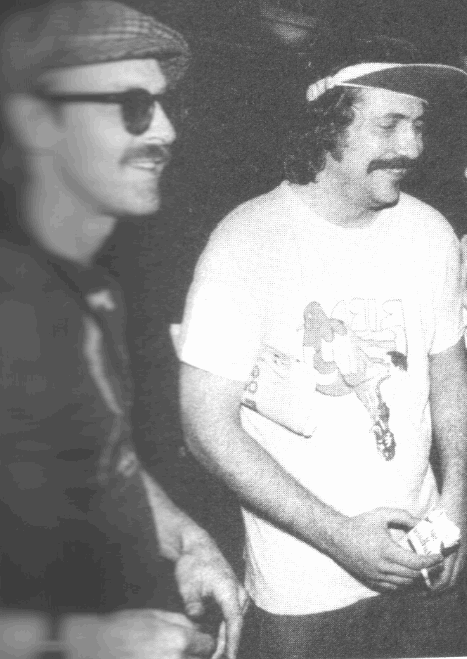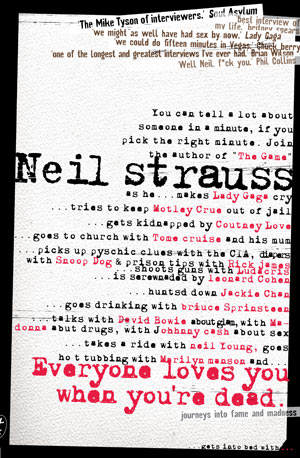Rock writing was not the first choice of Paul Nelson. A pioneer of rock criticism, and one of its most talented practitioners, Nelson (who cites Ross Macdonald as a literary hero) was originally more interested in detective fiction and movie criticism. Still, the Warren, Minnesota native entered the world of music criticism in the early ’60s and wound up changing the way people listened to the music, while helping to launch a “New Journalism” that barely exists anymore. Before Richard Meltzer, Lester Bangs, Robert Christgau and Greil Marcus exploded onto the rock journalism scene, Nelson and a college buddy started their own Minnesota-based folk-music criticism magazine in 1961–
Little Sandy Review. Nelson and his friend, John Pankake, wanted to champion music’s traditionalists. While Nelson stood in the audience and watched fellow University of Minnesota student Bob Dylan turn his acoustic-strumming folk music into an electric guitar thunderstorm, others in the audiences booed and threw various objects at Dylan. Nelson, on the other hand, was mesmerized and wrote about Dylan’s new music as though rock would never be the same.
Nelson’s folk-to-rock epiphany happened at the same time Dylan transformed music forever on stages at the Newport Folk Festival in 1965, Forest Hills, New York and Carnegie Hall–all shows that featured Dylan performing half-acoustic and half-electric shows. Dylan and Nelson both created and recognized a new kind of rock music at the same time from two different perspectives–performer and audience member.
Nelson wrote about the music that moved him. Whether his subject was a singer-songwriter like Jackson Browne or the punk rock debut of the Sex Pistols, Nelson’s trademark was writing about the music that changed his life. He wrote feature stories, concert reviews and record reviews for Sing Out!, Circus, The Village Voice, The Real Paper, andRolling Stone. He was one of Rolling Stone‘s most influential record review editors. Nelson also worked for Mercury Records in the first half of the ’70s in publicity and A&R.
Today, Nelson no longer writes about nor listens to rock music. He lives in New York City and works in a video store, surrounded by his real love in life–films.
Nelson has not yet given up on writing completely. During a two-hour telephone interview with Nelson on March 6, 2000, he told me that he is working on a screenplay. Nelson, a very private individual, did not want to discuss any details about his film project except to say that he believes Hollywood would not want to go anywhere near it because it’s “so different than anything Hollywood is putting out today.” Nelson had no problems sharing with me his reasons for disappearing from the world of rock criticism. The interview took place just after midnight after Nelson arrived home from work late one night. Nelson is still a night owl, a creature who has always preferred the late night hours–a great time to read, listen to music or watch his favorite Bergman films.
– – – – – – – – – – – – – – – – – – – – – – – – – – – – – – – – –
Steven: Where should we start?
Paul: Let’s just ramble.
Steven: How old are you Paul?
Paul: Let’s not start there. Dylan and I came to New York at the same time. I knew him at college actually at the University of Minnesota when he was Bobby Zimmerman. He was from around Hibbing, Northeast, I was from the Northwest, Warren, Minnesota. Sixty miles from Canada.
Steven: Do you remember the age you were when you discovered music and writing? Did it happen at the same?
Paul: I don’t remember but my parents used to tell me they had some 78s when I was a kid, and at a year and a half years old I could remember what the songs were by memorizing scratches on the label. I mean I couldn’t read, but I would say, “I want to hear this one,” or something like that, indicating that I was always right about the title. I have no idea what the songs were. I remember the first records I got. Two of them. From listening to them on the radio. Warren had 2,000 people. We had no record store or book store. We had one movie theatre and one drug store that sold magazines and sold paperbacks and that was culture. I saw every movie in town. My father subscribed to Time and Newsweek and I had to order any books I wanted to order from Minneapolis. It was like strange America. My high school was completely backwards. O. Henry was the great American writer. It was a very censored experience. I had no idea what classical music was, I didn’t hear any classical music until I got to college. I felt like the dumbest kid in college because everyone else taking English classes had read all of these people who I never heard of. I read every book in the town library. There was about 40 of them and they were all about baseball or Shakespeare. I didn’t understand Shakespeare. I got the gist of it but it was the size.
Continue reading “From the Archives: Interview with Paul Nelson (2000)” →











